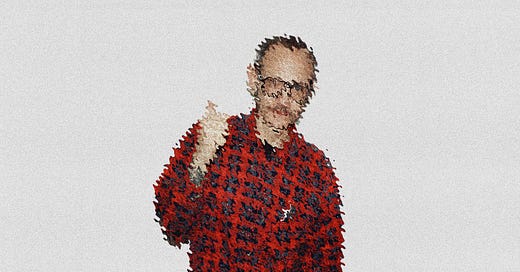Terry Richardson is shooting again. Why?
His new covers read less like a provocation than a kind of nihilistic tableaux – signalling tone-deaf power and the industry’s enduring tendency to prioritise status over care.
By Madeleine Rothery
The fashion industry seems to have been struck with yet another bout of amnesia, this time affecting magazine Arena Homme+, which released two covers shot by Terry Richardson – the once-dominant industry figure who retreated from public view after facing multiple allegations of sexual assault (two of which were brought against him as recently as 2023 and remain ongoing).
Arena’s first cover, of a toilet stall with the words "PUNK ROCK RUINED MY LIFE" graffitied across it, could well have flown under the radar. The graffiti and caption beneath – "Cubicle/Isolation" – hint, perhaps, at Richardson's exile as a result of his excesses. But given its lack of similarity to his most famous work – and the fact comments were switched off – Richardson’s credit could easily have gone unnoticed.
It's the second cover, a flash-lit close-up of a Donald Trump mask that underlined the decision Arena clearly wanted to make. Turning comments off on this cover wasn’t enough to stem the ensuing surprise, exasperation, and anger from many. It doesn't really need explaining why Trump is a bizarre choice here. But, with one of the ongoing lawsuits against Richardson naming Trump Model Management as a defendant, alleging it ignored a model’s objections and placed her in harm’s way, the picture becomes harder to dismiss.
The return of Terry Richardson (he also shot a campaign for French brand Enfants Richés Deprimes earlier this year) lands within a broader cultural drift – figures once sidelined for abuse, misconduct, or predatory behaviour are being quietly, and sometimes triumphantly, reabsorbed. Just this week, Kevin Spacey was awarded a lifetime achievement honour at the ‘Better World Fund’, a private gala held at the Carlton Hotel in Cannes. Gosha Rubchinskiy, who left fashion in 2018 following allegations of inappropriate contact with a teenage boy, launched a new photography book at Photo London. Neither reappearance came with a public reckoning, only denial muted by the passage of time.




